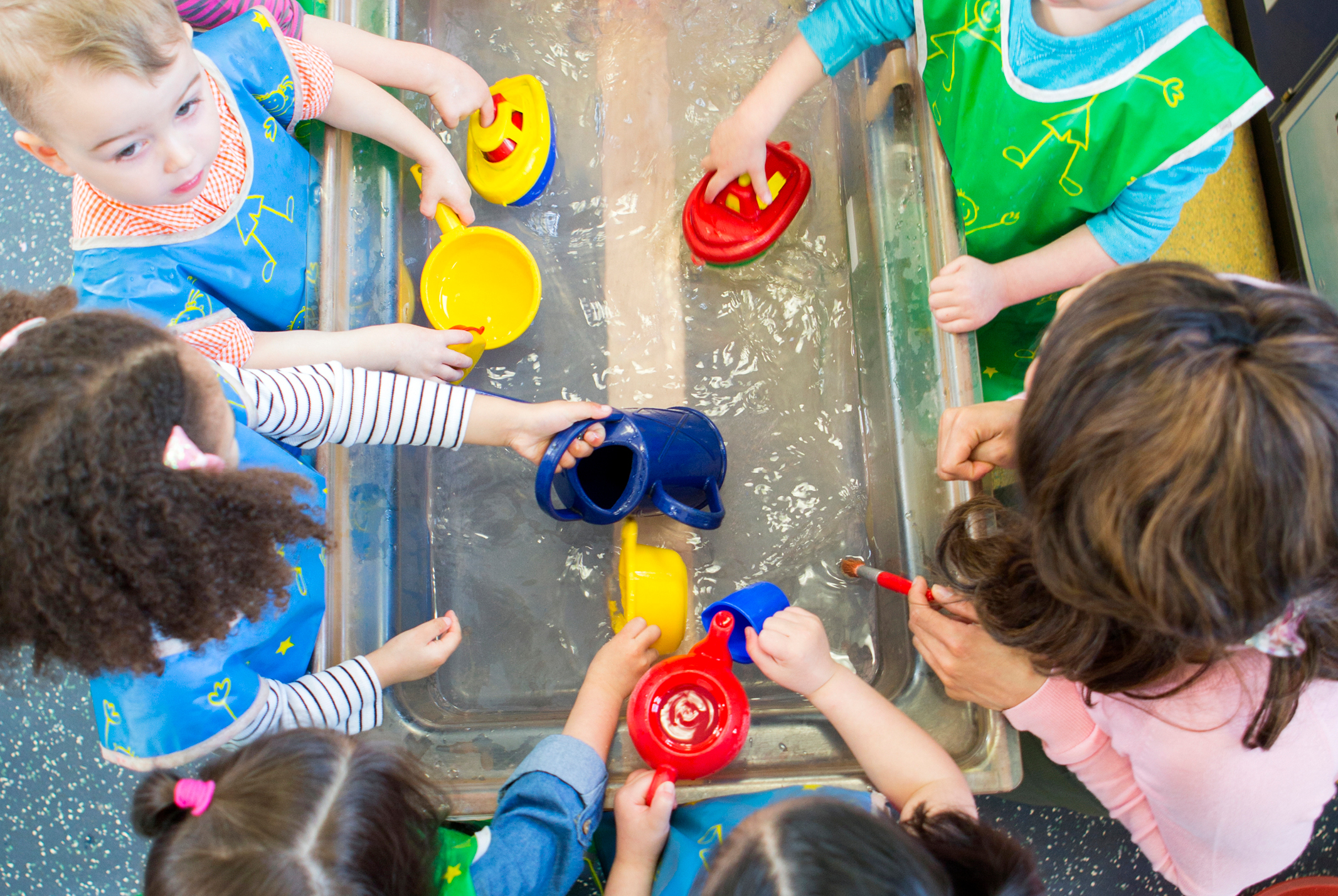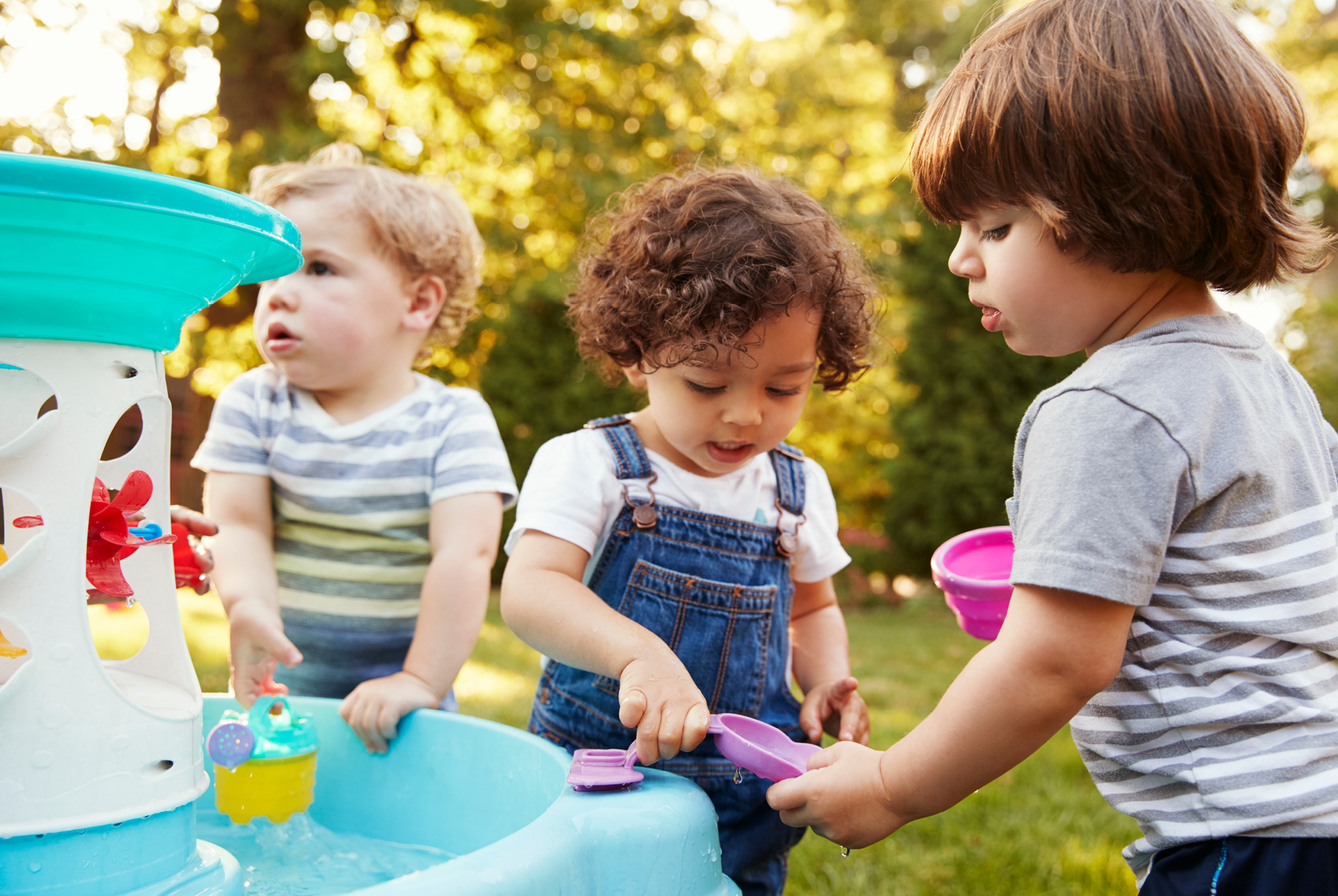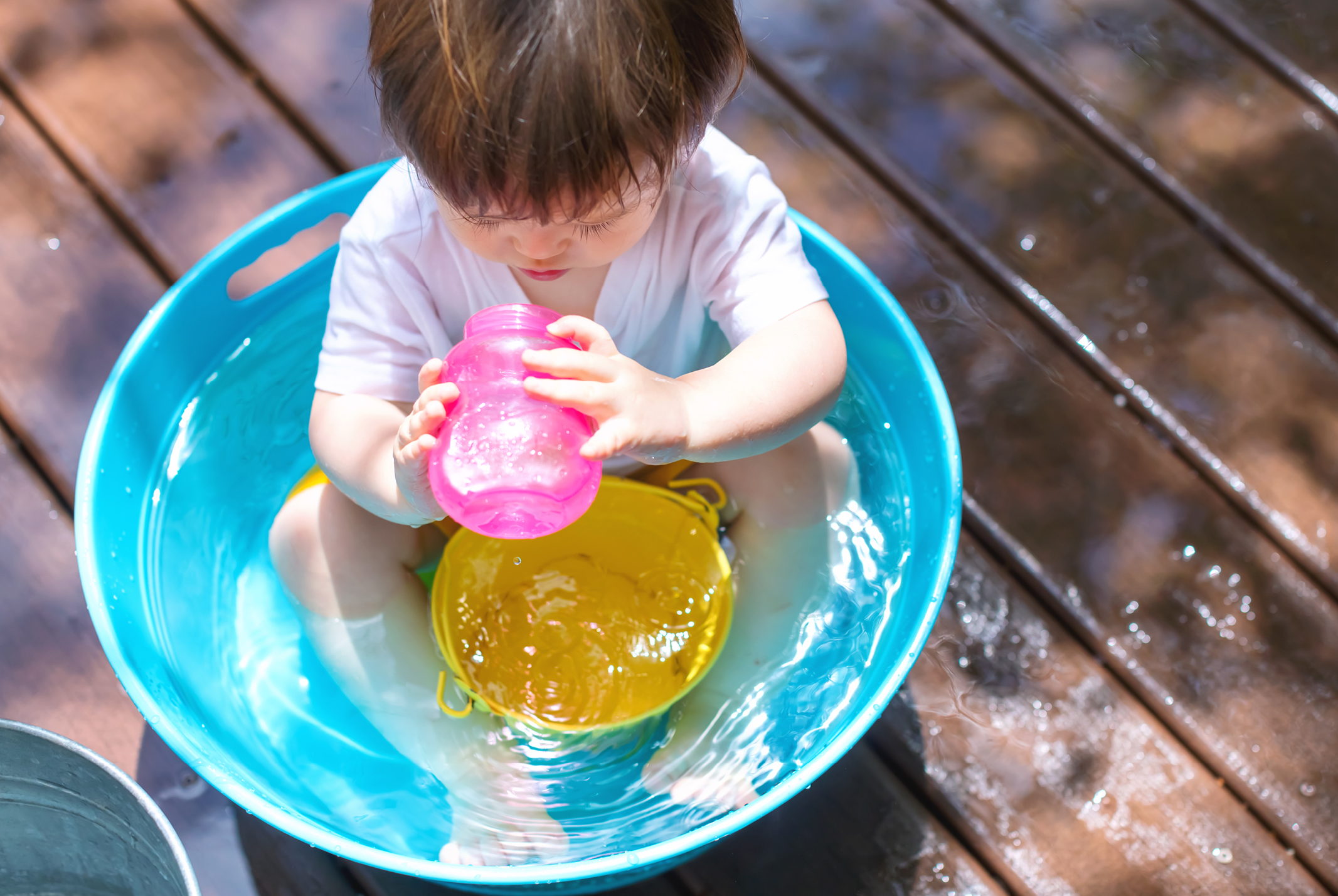
Step Up To Quality Stories
Make the Most of Water Play This Summer
Whether you’re preparing for summer activities in the classroom or in your home, children greatly benefit from the wonderful world of water play. Playing with water presents a range of opportunities for children to develop their fine and gross motor skills, to work on sharing and social skills, to explore concepts of math and science, and to relax and have fun while learning.
How to build your own water play environment

Water play can be as simple or as elaborate as your budget allows. While there are pre-made water play tables for purchase, it’s easy to create your own with items you may already have.
In the classroom, a water play station could be several shallow plastic bins outdoors or indoors over a tarp. At home, it could be a bathtub filled with a few inches of water or a baby pool in the yard. Common items from school, home or nature, like cups, ladles, squeeze bottles, toys, leaves or sand, are a good place to start — but the possibilities are endless, and children will enjoy a variety of options.
Make sure the items can’t easily break and are child safe. We recommend avoiding straws for very young children. All water play should always be supervised by an adult.
Connecting water play to learning

Once you buy or build an environment, it’s time to play! Water play activities present many opportunities for learning and skill development.
Children can increase their fine motor skills and hand-eye coordination by using tools to grab, pour, squirt, stir and squeeze. Because water play typically occurs in a limited space with few supplies, children can also practice their communication and social skills by sharing tools with each other and working together to achieve a goal, like moving water from one bucket to another with cups.
Exploration and learning is plentiful in water play. Basic mathematics concepts like full, empty, half and less, or measuring amounts of water and comparing volumes, can have fun, hands-on application in water play. You can also take dry substances, like dirt, sand or rocks, and allow children to explore how adding these items to water can change their properties.

To make the most of water play, be an enabler — not a director. Water play, like other forms of play, is most impactful when children take an active role and ownership in their experiences as the leaders of their learning journeys.
- Structure your water play area to have interesting and challenging materials. Once children get used to using certain tools, try incorporating others for play. For example, if children have been using tongs to pick up objects out of the water, introduce ladles as another method. You can also alter the water itself: add a few drops of mild dish soap to create bubbles with a whisk or wand or add food coloring to explore what combinations create new colors.
- Ask open ended questions, such as “What do you think will happen to the volume of water if we drop this rock in a cup?” This is a chance for you to model new vocabulary with children and encourage prediction.
- Give children the chance to debrief the situation, telling others what they did and learned through play.
Many child care providers already have water play in their curriculum, but we hope these tips give you ideas for new, fun ways to step it up a notch. If you’re ready to learn other ways to boost the quality of your care, Step Up to Quality helps great child care providers become even better. If you’re a parent who’s on the search for providers who are committed to quality care, check out our search tool to find options near you.
